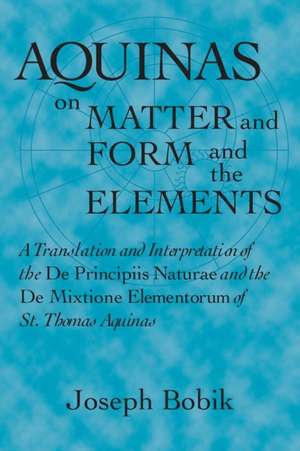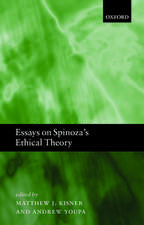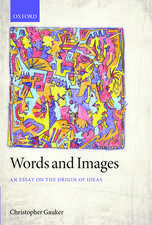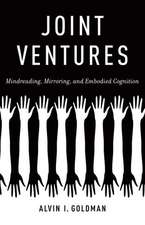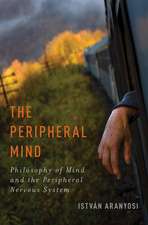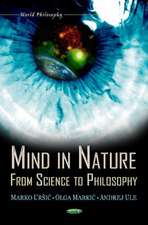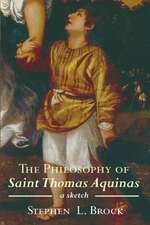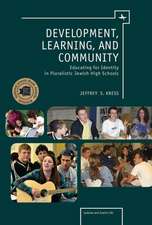Aquinas on Matter and Form and the Elements – A Translation and Interpretation of the De Principiis Naturae and the De Mixtione Elementorum
Autor Joseph Bobiken Limba Engleză Paperback – 14 mar 1998
In Aquinas on Matter and Form and the Elements, Joseph Bobik proceeds, not by taking into account the works of countless scholars, but rather by trying to do some genuine, straightforward, and unencumbered philosophy, using the words of Thomas Aquinas as a point of departure. In parts one and two of this volume, he presents, translates, and offers a readily comprehensible interpretation of Aquinas's De Principiis Naturae and his De Mixtione Elementorum.
Bobik then reflects on what Aquinas says about matter and form and the elements in various contexts and throughout his many works. In part three, Bobik clarifies how, according to Aquinas, composition out of matter and form, on the one hand, and composition out of elements, on the other, relate to one another and to the physical substances in which they are found. He considers the role of the elements in relation to the creative causality of God, and in relation to the generating and sustaining causality of the heavenly bodies. Part four investigates various sources in order to see what thinkers today have to say about the elements, the hope being that today's views and those of Aquinas might shed some helpful and welcome light on one another.
Bobik then reflects on what Aquinas says about matter and form and the elements in various contexts and throughout his many works. In part three, Bobik clarifies how, according to Aquinas, composition out of matter and form, on the one hand, and composition out of elements, on the other, relate to one another and to the physical substances in which they are found. He considers the role of the elements in relation to the creative causality of God, and in relation to the generating and sustaining causality of the heavenly bodies. Part four investigates various sources in order to see what thinkers today have to say about the elements, the hope being that today's views and those of Aquinas might shed some helpful and welcome light on one another.
| Toate formatele și edițiile | Preț | Express |
|---|---|---|
| Paperback (1) | 236.68 lei 6-8 săpt. | |
| MR – University of Notre Dame Press – 14 mar 1998 | 236.68 lei 6-8 săpt. | |
| Hardback (1) | 699.76 lei 6-8 săpt. | |
| MR – University of Notre Dame Press – 14 mar 1998 | 699.76 lei 6-8 săpt. |
Preț: 236.68 lei
Nou
Puncte Express: 355
Preț estimativ în valută:
45.29€ • 49.18$ • 38.05£
45.29€ • 49.18$ • 38.05£
Carte tipărită la comandă
Livrare economică 22 aprilie-06 mai
Preluare comenzi: 021 569.72.76
Specificații
ISBN-13: 9780268020002
ISBN-10: 0268020000
Pagini: 348
Dimensiuni: 151 x 228 x 21 mm
Greutate: 0.54 kg
Ediția:1
Editura: MR – University of Notre Dame Press
ISBN-10: 0268020000
Pagini: 348
Dimensiuni: 151 x 228 x 21 mm
Greutate: 0.54 kg
Ediția:1
Editura: MR – University of Notre Dame Press
Recenzii
“This book offers a translation of Aquinas’s De Principiis Naturae (circa 1252) and De Mixione Elementorum (1273) accompanied by a continuous commentary, followed by two essays: “Elements in the Composition of Physical Substances” and “The Elements in Aquinas and the Elements Today.” The unity of the volume rests in the question of the composition of natural things (whether out of matter and form, or out of the elements). . . . Bobik’s translation is remarkably clear.”
“Congratulations and thanks to Joseph Bobik for having provided a translation that is both accurate and readable of Thomas’s De principiis naturae and De mixitone elementorum.”
“This work is a companion to Bobik’s earlier translation and commentary on Aquinas’s On Being and Essence. The Principles of Nature introduces the reader to the basic Aristotelian principles such as matter and form, the four causes so fundamental to Aquinas’s philosophy. On Mixture of the Elements examines the question of how the four elements (earth, air, fire, and water) remain within the physical things composed from them. Bobik gives probably the first published English translation of this work by Aquinas. He includes a section that puts some of the issues raised into a broader context by relating Aquinas’s theory both to modern physics, especially the Big Bang theory, and to the work of a little-known medieval Jewish philosopher, Nahmanides.”
Notă biografică
The late Joseph Bobik was professor of philosophy at the University of Notre Dame.
